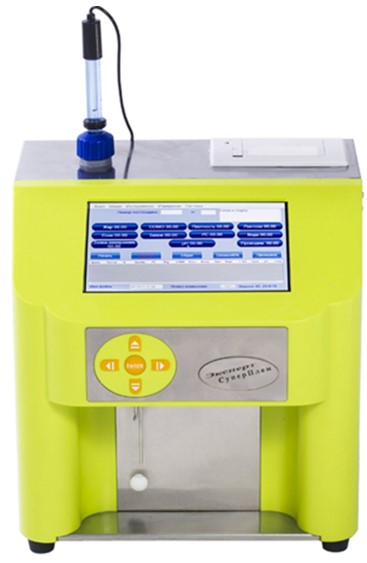Medical myths: do we have to take 10,000 steps every day

Photo is illustrative in nature. From open sources.
We have heard it many times: we have to take 10 thousand steps every day to feel healthy and in shape. However, some of the research results may surprise you, writes the BBC.
Many of us calculate how many have passed in a day - with the help of smart watches, pedometers, mobile applications in smartphones. We are happy when the number of 10,000 steps has been reached - well, it's important! The application I use explodes on the screen in green confetti, congratulating me.
It also captures "strikes" - it's when I get a 10,000-piece rate over a whole week. How often does this happen? I will answer honestly: seldom.
Of course, you can argue about the accuracy of some pedometers. It is clear that they are counting quite roughly and do not take into account the peculiarities of your movements. For example, if you run, the number of steps will be the same as when you walk in the loading dock, although the difference in health benefits is significant.
However, pedometers give you an overview of how active you were during the day.
If you are going to count the steps, it is important to know how many steps you have set for yourself. Most default loggers offer you 10,000 steps per day as a target.
This figure is so widely known that it is logical to assume that it was born out of years of research, when scientists were struggling with how many steps per day were optimal for your health - 8000, 10 000 or maybe 12 000...
In fact, no such research has been done.
The magic figure of "10,000" was born in 1964 before the Tokyo Olympics, during the marketing campaign then underway. A Japanese company started selling a pedometer called "Manpo-kei": "Manu" means "10,000", "by" means "footsteps" and "kay" means "counter".
"Manpo-kei was very popular, and the figure of 10,000 was stuck in people's heads.
Since then, studies have been conducted comparing the benefits of taking 5,000 and 10,000 steps daily. Not surprisingly, the higher number won.
However, until recently, the effectiveness of the number of steps in the range between five and ten thousand was not studied. Even now, this has not been comprehensively tested on adults.
A recent study by Harvard Medical School Professor Imin Lee and her colleagues focused on a group of more than 16,000 women over the age of 70. Scientists have tried to compare the number of steps taken during the day with the probability of death from any cause. Each of the women spent a week with a wearable device to record her movements.
The researchers then took a long pause of about four years and three months. By that time, 504 women who had participated in the experiment had died. [ADD-Y]
How many steps do you think those who were still alive took per day? Those magic ten thousand?
It turned out that the average number of steps these women took every day was 5,500, and even a slight increase in this figure mattered. For example, women who took more than 4,000 steps a day had a much better chance of not dying than those who did 2,700.
Surprisingly, such a small difference could have such serious consequences for life expectancy.
Following this logic, you can assume that the more steps you take in a day, the better. For a certain range of steps it was - but only up to 7500 per day, after which the benefits stopped growing.
Any addition of steps after this number had no effect on life expectancy.
Of course, one of the drawbacks of this study is that we can't be sure: perhaps the steps preceded the disease from which the woman died.
The study included women who were healthy enough to go outside and move around on their own. Of course, the scientists asked them beforehand how healthy they felt.
But some of the participants may have been able to walk, but not too far away. In other words, they took fewer steps then, because they were already unhealthy, and in their case the difference in the number of steps did not matter.
Perhaps the scientists suggested that 7500 steps were enough for this age group, although it is also possible that adding the number of steps would give the body additional protection.
In addition, the higher number of steps could only indicate a more active lifestyle that the participants had been leading for many years, and that was what helped them to live longer.
That's why it's difficult to determine exactly how many steps are more beneficial to your health and how many should be added to your daily number.
The question arises about the optimal number of steps in terms of psychology. The goal of "ten thousand every day" can seem difficult to achieve - so many just give up on it.
All the time, day after day, you may be desperate. One study of British teenagers found that at first 13-14-year-olds liked to fight for 10,000 steps every day, but soon they realized how difficult it was to do it regularly, and began to complain about the injustice of the mission.
I did my own psychological experiment, changing the number of steps in my mobile app to 9000.
I tried to deceive myself with the fact that I was moving around the house while not carrying my smartphone for the rest of my life. But in fact, I just wanted to cheer myself up by being able to do the steps much more often.
To inspire people who are usually sedentary to take more steps, it may be psychologically correct to use lower targets.
The trouble is that the intense counting of each step deprives us of the pleasure of walking.
Jordan Atkin, a psychologist at Duke University (USA), found that people who monitor how many steps they take actually walk longer and farther, but they don't like it that much. As they say, it looks like work.
When the researchers checked their satisfaction with life at the end of the day, it was lower than that of those who just walked around, ignoring the number of steps.
And even for the most physically well-prepared, counting of steps can be counterproductive, giving them a false signal: everything, the goal is achieved, you can no longer try.
What is the conclusion from all this? Count the steps if you feel that it motivates you. But remember: there is nothing magical about the number 10,000.
Set yourself a goal that suits you personally. It can be more than ten thousand or less. Or maybe you decide to just throw away your pedometer and then feel great!




























































